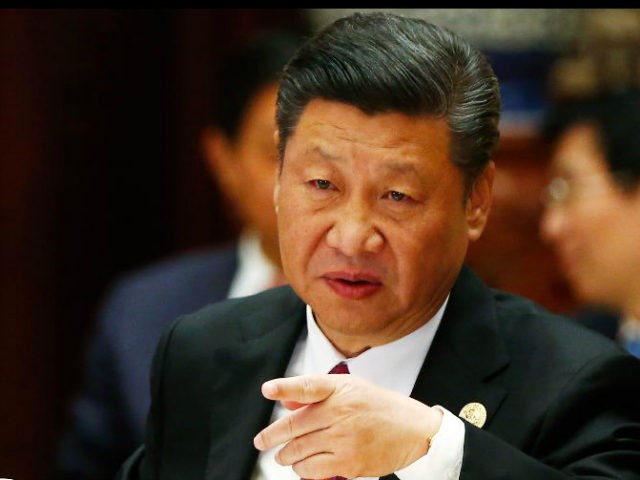Chinese dictator Xi Jinping chose to address the COP26 climate change conference in Glasgow, Scotland, by video link instead of attending in person.
Xi demanded “concrete action” on climate change from the rest of the world, while China hauls record-breaking volumes of coal out of the Earth and pours it into the record-breaking number of carbon-generating coal-fired power plants it built over the past few years.
China’s state-run Xinhua news agency summarized Xi’s remarks without dwelling on how sharply his rhetoric differed from China’s actions:
Climate change and energy issues are today’s prominent global challenges, which concern the common interests of the international community and the future of the Earth, Xi said.
The willingness and motivation of the international community to work together to cope with challenges continued to rise, and the key is to take concrete actions, he said.
He called on the world to adopt comprehensive and balanced policies, and balance environmental protection and economic development, as well as addressing climate change and safeguarding people’s livelihood. Major economies should strengthen cooperation in this area, he added.
Xi bragged that China, which remains the world’s worst polluter, made great strides toward reducing its carbon emissions over the past 15 years and promised to make greater commitments in the future. He claimed the Wuhan coronavirus pandemic set China’s plans for carbon neutrality back, even though Beijing laid the groundwork for its delirious coal-plant binge long before the pandemic erupted.
Xi argued the “developed” world should make more sacrifices to fight climate change, giving time for “developing” nations (as China likes to describe itself) to fully develop their industrial capacity.
These arguments mirror the “historical emissions” argument some climate activists have been preparing to excuse China’s titanic carbon footprint – essentially holding the Western world responsible for generating carbon emissions back when it dominated heavy industry in the 19th and 20th centuries, so developing nations should be allowed to emit more carbon today while they catch up.
Nevertheless, the Wall Street Journal (WSJ) on Friday noted climate advocates are “disappointed” with the plans China submitted before COP26.
The climate change movement hoped to do away with coal power entirely, but when China’s industrial provinces experienced an energy shortage, Beijing did not hesitate to order “all-out” coal production, from both Chinese and foreign suppliers.
According to the WSJ, China’s “carbon road map” was rewritten in October and made significantly less ambitious. Among other downgrades, the Chinese road map does not even promise to stop building coal plants – it merely pledges to adhere to “international energy efficiency standards” when constructing them.
“With regard to the disappointment, the disappointment relates to the fact that … not only Russia but China basically didn’t show up in terms of any commitments to deal with climate change. And there’s a reason why people should be disappointed in that. I found it disappointing myself,” U.S. President Joe Biden said at the conclusion of the G20 summit in Rome on Sunday, conveying a great deal of disappointment indeed.
The BBC noted last week that Xi claims China’s carbon emissions will peak before 2030 and decline to “carbon neutrality” by 2060, but his government has not explained “exactly how these goals will be achieved.” China is currently emitting about twice as much carbon as the United States, or about as much as the rest of the top-five carbon-producing nations combined.
The BBC quoted activists who said China’s plans were “insufficient” even back when it was promising to stop building coal plants, and now it has over 60 of them under construction across the country.

COMMENTS
Please let us know if you're having issues with commenting.